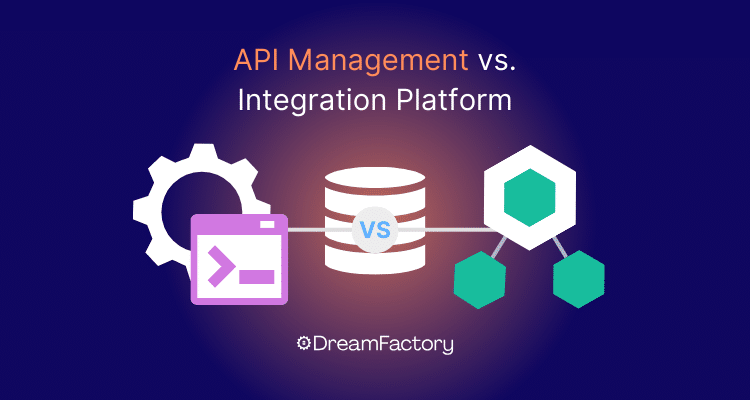In this article, we will explore the differences between an API management vs. integration platform, and why understanding them is crucial for businesses seeking to optimize their data and service integrations.
Here are the key differences between API management and integration platforms:
- API management primarily focuses on the management and exposure of APIs, while integration platforms provide end-to-end solutions for data and service integration.
- API management is ideal for businesses looking to expose APIs to external parties, whereas integration platforms are designed for complex data integration scenarios.
- API management places a strong emphasis on security and governance of APIs, whereas integration platforms offer broader security measures for data across the organization.
- API management is developer-centric, facilitating API development and documentation, while integration platforms cater to both developers and business users.
- API management often requires more customization, whereas integration platforms offer pre-built connectors and workflows for quicker deployment.
What Is API Management?
API management is a set of processes, tools, and policies that allow organizations to create, publish, and manage APIs (Application Programming Interfaces) in a secure and scalable manner. It focuses on making APIs accessible to external developers and partners while ensuring security and control over API usage.
How Does API Management Work?
API management operates as a comprehensive system for handling APIs. At its core is the API gateway, which serves as the entry point for all API requests, directing them to the appropriate backend services. This gateway handles essential tasks such as load balancing, caching, and security measures like authentication and rate limiting.
Before APIs become accessible, they undergo a design phase, with developers defining their structure and endpoints. API management tools simplify this process and provide clear documentation, making it easier for developers to understand and utilize the APIs effectively.
Benefits of API Management
API management offers a range of advantages that are essential for organizations seeking to optimize their API ecosystems.
One of the primary benefits of API management is its ability to provide robust security measures. With features like authentication, authorization, and encryption, it ensures that APIs and the data they handle are shielded from potential threats. This approach makes sure that only authorized users and applications can access your APIs, which reduces the risk of data breaches and unauthorized access.
API management platforms are designed with developers in mind. They offer comprehensive documentation, sandbox environments, and user-friendly tools, which allows for developer engagement. This engagement encourages external developers and partners to collaborate with your organization, which will expand your API ecosystem and its potential. API management solutions usually come equipped with real-time monitoring and analytics capabilities. This empowers you with valuable insights into API usage, performance, and any potential issues.
As your API usage grows, API management can scale to meet increased demands. This scalability ensures that your APIs remain responsive and reliable, even during periods of high traffic and demand, preventing disruptions and maintaining a positive user experience.
By establishing governance policies and ensuring compliance with industry regulations, internal standards are made critical for maintaining data integrity and trust. API management solutions provide the tools needed to enforce governance policies and ensure compliance.
Next, let's explore integration platforms.
What Is an Integration Platform?
In practical terms, an integration platform acts as the linchpin for organizations seeking to harmonize their systems, applications, and data across their operational landscape.
In a business setting, various departments engage in distinct activities, such as sales, customer support, project management, and marketing, each often necessitating dedicated software applications. The challenge arises when these applications operate in isolation, functioning as distinct entities within "silos."
How Does an Integration Platform Work?
An integration platform serves as the central nervous system of an organization's digital infrastructure, facilitating the exchange of data and functionalities between various applications and systems. To understand how it operates, let's delve into its core functions and mechanisms.
At its core, an integration platform connects different applications, bridging the gap between disparate software systems that might otherwise operate in isolation. It establishes communication channels that enable these applications to share information and execute actions.
An integral part of an integration platform's functionality is the ability to push or pull data from connected applications. This process ensures that critical data can be seamlessly transferred between systems, allowing for real-time updates and synchronization of information.
Integration platforms excel at orchestrating workflows, automating processes, and managing data flows between applications. They act as the conductor of a digital symphony, ensuring that each application plays its part harmoniously in a coordinated manner.
The underlying technology that powers an integration platform often relies heavily on APIs (Application Programming Interfaces) and webhooks. APIs enable applications to communicate and share data in a structured way, while webhooks provide a mechanism for real-time event notifications, triggering actions in response to specific events.
Benefits of an Integration Platform
Integration platforms are garnering attention for their ability to drive efficiency, productivity, and cost-effectiveness in highly competitive markets. With the demand for integrations soaring, organizations face the risk of digital transformation projects failing due to integration challenges, as noted by Gartner.
- Data Unification: Integration platforms excel at strategically organizing and unifying data, unlocking valuable insights. Businesses leveraging data for decision-making are 58% more likely to exceed revenue targets (Forrester).
- Transformational Power: These platforms seamlessly bridge cloud-based and on-premises applications, accelerating operations, streamlining critical processes, and optimizing data management while reducing costs.
- Enhanced Customer Interactions: Integration platforms facilitate holistic customer data views, enabling personalized interactions that enhance satisfaction and loyalty.
- Streamlined Integration: Modern integration platforms consolidate essential capabilities into a unified solution, simplifying complex integration scenarios. This approach overcomes challenges such as high costs, complexity, and scalability constraints associated with traditional methods, ensuring success in today's competitive landscape.
API Management vs Integration Platform: Key Similarities
Here are the key similarities between API management and integration platforms:
- Integration: Both API Management and Integration Platforms are centered around the core concept of integration, serving to harmonize diverse systems, applications, and data sources. They facilitate perfect data exchange, bridging gaps between legacy and modern systems while ensuring smooth cross-platform data sharing.
- Security: Security is a paramount concern today. Both API management and integration platforms prioritize security to safeguard sensitive data and ensure compliance with industry regulations
- Monitoring: Real-time monitoring and analytics are essential components shared by API management and integration platforms. They provide organizations with valuable insights into the performance and health of integrated systems.
- Ease of Use: Simplifying complex integration tasks is a common goal for both API management and integration platforms. They both recognize the importance of making integration accessible to both technical and non-technical users.
- Customization: Every organization has unique integration needs, and both API Management and integration platforms recognize this diversity. They offer customization options that allow businesses to tailor their integration solutions to specific requirements.
API Management vs Integration Platform: Key Differences
API management primarily focuses on managing and exposing APIs, whereas integration platforms address broader data integration needs across various systems and applications.
- Use Cases: API Management suits businesses aiming to expose APIs to external parties, while Integration Platforms excel in complex data integration scenarios within an organization.
- Governance and Security: API Management emphasizes API-specific security and governance, whereas Integration Platforms offer broader security measures for data integration spanning multiple systems.
- Developer-Friendly: API Management is developer-centric, while Integration Platforms cater to both developers and business users.
- Customization vs. Out-of-the-Box: API Management often requires more customization, while Integration Platforms provide pre-built solutions for quicker deployment.
API Management vs Integration Platform: Which Is Best?
The choice between API management vs integration platform depends on your organization's specific needs. If you primarily need to expose APIs to external parties or focus on API management, API management solutions are ideal. However, for comprehensive data integration and workflow automation, an Integration Platform provides a more suitable solution.
Consider factors like your integration goals, security requirements, developer resources, and scalability when making your decision.
Getting Started with DreamFactory
In a sea of API management solutions, DreamFactory stands as an outlier, marking the territory of API generation. For developers and tech aficionados, it serves as a reminder that while management is crucial, the efficiency of generation can be a game-changer. By redefining the API lifecycle’s starting point, DreamFactory offers a fresh perspective on how we think about and work with APIs.
Start your free 14 day trial now!
As a seasoned content moderator with a keen eye for detail and a passion for upholding the highest standards of quality and integrity in all of their work, Spencer Nguyen brings a professional yet empathetic approach to every task.
























 Blog
Blog

